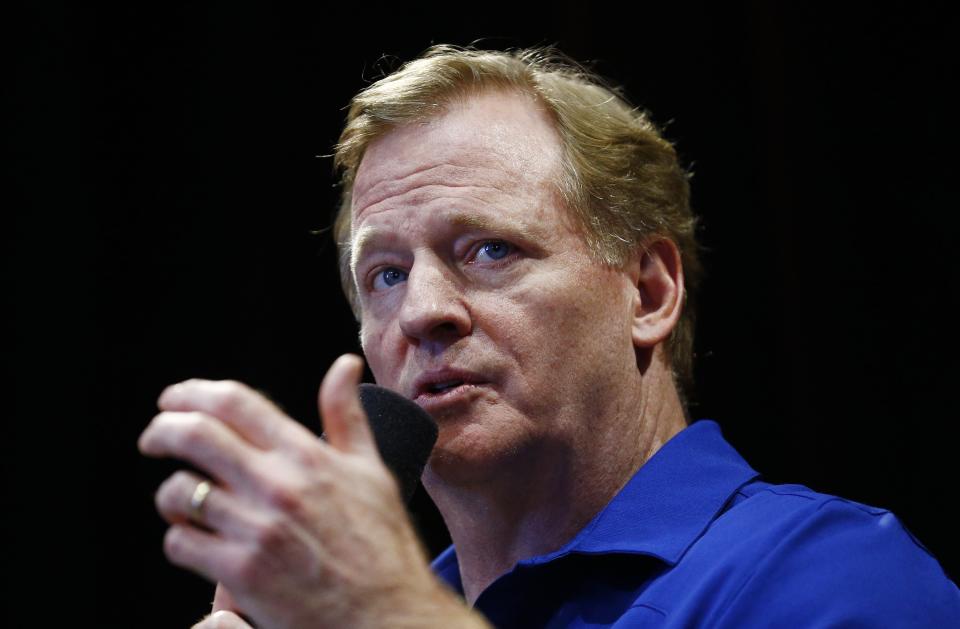Roger Goodell on player protests: 'We have to understand the other side'
NFL commissioner Roger Goodell met with Arizona Cardinals season-ticket holders on Monday, and of course was asked about players protesting during the playing of the national anthem.
Over the weekend, Seattle Seahawks veteran Michael Bennett and Oakland Raiders running back Marshawn Lynch sat on the sideline during the anthem, while Los Angeles Rams pass rusher Robert Quinn and Philadelphia Eagles safety Malcolm Jenkins each raised a fist.
Bruce Olson, a Cardinals club seat holder, asked Goodell if players would continue protesting throughout the season and if anything could be done about it.

“It’s one of those things where I think we have to understand that there are people that have different viewpoints,” Goodell said, via the Associated Press. “The national anthem is a special moment to me. It’s a point of pride. But we also have to understand the other side, that people do have rights and we want to respect those.”
Bennett eloquently explained why he is sitting, his reasoning boiling down to equality for all.
Goodell noted that players aren’t just protesting, but many are creating conversation. Colin Kaepernick, the first NFL player to protest during the anthem last year, has given his time and money to numerous organizations; Jenkins and Denver Broncos linebacker Brandon Marshall have both spoken with departments in their respective cities about better policing methods.
“‘Protest to progress’ is what I call it, and we all have to recognize that if we want to see change, let’s go out and try to make that change happen in a peaceful and important way,” Goodell said.
Olson, like many who care more about the players’ method of protest than the reason for protesting, apparently believes Goodell should mandate that players must stand (which is not possible, as that is illegal).
“The thing is, all [Lynch] has to do is stand up for two minutes and he can still have whatever beliefs he wants. Go with what looks good for the game and to the people,” Olson said. “[Goodell] makes the rules … Why can’t he just say, ‘You stand up. You can believe what you want or do what you want. Just stand up like a man.'”
For the record, it is unclear whether Lynch’s sitting was part of a protest; as a member of the Seahawks, he frequently sat during the playing of the song, though it garnered little to no attention.



